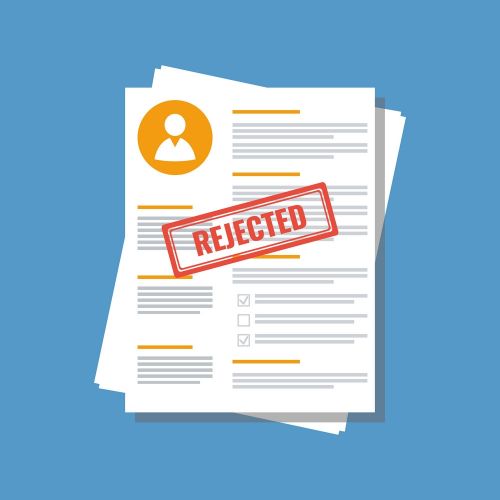Why Did The Insurance Deny My Claim?
August 28, 2020

After you’ve been involved in an accident that you are certain was not your fault, it may be shocking to have your insurance claim denied by your insurance company despite your efforts in filing the claim. Once you’ve received a denial from the insurance claim, you may think that there is nothing more for you to do to get compensation for your injuries and damages. However, many insurance claims are initially denied by the insurance companies, only for insurers to ultimately pay out for damages after aggressive negotiation or litigation by a knowledgeable New Jersey car accident attorney.
If you’ve received a denial from your own insurer or from the alleged at-fault party’s insurer, it is important to understand the reasons why your claim was denied so that you can know how to proceed in fighting the denial and continuing to pursue the financial compensation that you need and deserve.
Why Do Insurance Companies Deny Claims?
Although you may assume that insurance companies exist to protect us, you cannot forget that insurance companies are, above all else, businesses. That means that they need to make a profit; the only way they generate profit is to take in more in premiums than they have in expenses and pay out in claims. Insurance companies are pretty efficient operations, so the only way they can increase their profits is to minimize the amount of money they pay out for claims—this means reducing the value of claims or denying them outright. When a person filing an insurance claim is not represented by an attorney, the insurance company may believe that they can get away with an outright denial or by offering the person a modest sum of money.
Common reasons that insurance companies cite when denying claims arising from accidents include:
You Were At Fault Or Partially At Fault For The Accident
The insurance company may argue that you were in some way at fault for causing the accident; alternatively, the insurance company may deny your claim on the basis of your legal fault, such as if you were intoxicated, or if you drove without a license or insurance when you got into a motor vehicle accident.
You Failed To Report The Accident in a Timely Manner
If you wait too long to report the accident, such as by obtaining a police accident report or filing an accident/incident report with an at-fault business, the insurance company may express doubts about the truthfulness and validity of your claim. In addition, insurance policies often require that claims be filed within a certain time after you incur a loss; filing your claim outside of this time window may give the insurance company a contractual basis to deny your claim.
You Delayed Seeking Medical Treatment
Similarly, if you wait too long to seek medical treatment for injuries you suffered in the accident, the insurance company may argue that your injuries are really pre-existing conditions or that you were injured by something else after your accident. The insurance company may also argue that you failed to mitigate your damages by seeking prompt treatment so as not to let your condition worsen.
Your Claim Exceeds The Policy Limits
Insurance companies only agree to cover claims up to a certain dollar amount. If your damages exceed this amount, the insurance company can only offer the policy limit they are contractually obligated to pay. An attorney can help you identify other sources of insurance coverage or compensation that may make up the difference in your damages.
The Person At Fault For The Accident Is Not Covered By The Policy
If your accident and injuries were caused by someone who the insurance company is not contractually obligated to cover, the insurance company will deny your claim.
Bad Faith Practices
The purpose of insurance is to ensure that injured individuals have access to resources after an accident. Yet, insurance only functions as intended when both policyholders and insurance providers fulfill their obligations. A corporation is required by law to honestly consider any claims that may be made if a policyholder acquires coverage and pays premiums on time. Sadly, some insurance companies disregard the law and arbitrarily reject claims in bad faith. The following are some examples of such scenarios.
- Claims Rejected Without Appropriate Investigation—While evaluating an insurance claim for benefits, insurance adjusters are required to exercise due diligence. This due diligence should involve looking into the claim and any other pertinent facts. How can you tell that your claim wasn’t looked into before it was rejected? Always check to see if the insurance gives a good rationale for the denial. A warning sign should be raised if an insurer rejects your claim without providing any justification or explanation.
- Not Filing a Claim on Time—It’s important to move quickly and get in touch with an insurance provider as soon as you can, following your accident. Most businesses have stringent deadlines for when you must submit a personal injury claim. Most of the time, you must file your claim within a “reasonable” period of time following your injury. Some businesses define what is reasonable in detail, whereas others do not. If the company feels that you didn’t submit your claim in a timely manner, it’s conceivable that your claim could be rejected. This could sometimes be a strategy used in bad faith with the intent to keep you from getting paid for a valid claim.
- You Don’t Have an Attorney to Represent You—If you don’t have an attorney to represent you, insurance firms will not hesitate to take advantage of you. They will think you may not fully understand your legal rights, and hold that against you. They may make it difficult for you to contact a representative or needlessly delay the processing of your claim. These tactics are meant to make you buckle under financial pressure and be eager to accept any lowball offer they may make. By engaging an attorney to handle your claim, you can protect yourself and ensure that your claim gets the attention it needs.
What Steps Should You Take If a Claim is Denied?
- Collect evidence: Go over any paperwork the insurance provider may have provided, and compile the proof you’ll need to appeal. This may consist of police reports, testimony from witnesses, pictures, medical records, and other supporting evidence. Make copies of everything and provide them to the insurance provider, keeping the originals for yourself.
- Write an appeal letter: In this letter, you will explain your disagreement with the insurance company’s decision. Provide a justification for why each piece of information, including any police reports, was submitted in the first phase. Provide as much information as you can, citing details form both the claims denial letter and policy terms as appropriate
- Consider hiring an attorney: If you believe that your insurance claim for compensation following an accident that wasn’t your fault was wrongly denied, you need to speak to an experienced New Jersey personal injury lawyer to go over your options for fighting the denial, such as requesting the insurance company reconsider your claim, or filing suit in court to pursue your personal injury or property damage claim against the at-fault party.
Contact a Morristown Personal Injury Lawyer to Discuss Your Case in New Jersey
Did you or a loved one sustain serious injuries in New Jersey? Don’t let the medical bills pile up while you wait for the negligent party or their insurance company to do the right thing. Right now, you need an aggressive New Jersey personal injury attorney on your side, fighting to get you the compensation you need, want, and deserve. The skilled attorneys at Hoyt & Hoyt, PC represent clients injured in Morris Township, Montville, Edison, Woodbridge, and throughout New Jersey. Call (973) 292-2299 or fill out our online contact form to schedule a consultation about your case. We have an office conveniently located at 67 East Park Place, 5th Floor, Morristown, NJ 07960, as well as offices in New Brunswick.





